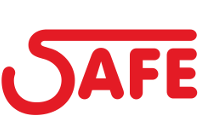
A combination of diligent policing by the South African Police Service, local community “watchdogs” and strict employment policies prevented SAFE farms across South Africa from being “flooded” with seasonal job seekers who had not been tested for coronavirus infection.
Thousands of seasonal workers across the country were left jobless by the countrywide “lockdown” and ban on travel – particularly travel between provinces.
Radio reports in early May said police at roadblocks were turning back job seekers without permits and some local community leaders said that some had erected their own roadblocks to keep non-permitted – and possibly infected – workers from entering their areas.
Regulations regarding the way in which farms and agribusinesses were to operate during the national lockdown were put in place as part of the South African Government’s response to the coronavirus disease (COVID-19) pandemic.
In the regulations, agribusinesses were encouraged to make use of “a labour force” that was accommodated on-site or isolated from other communities as far as possible.
“We generally employ the same casual staff when the packhouse gets very busy year after year,” said SAFE’s Sunland Packhouse `manager, Shelton Maarman, “so we have not experienced any problems at all with workers not known to us looking for work at the packhouse.
The Sunland packhouse gives work to 180 seasonal workers and 10 permanent staff.
Shelton said that he was aware that more seasonal workers than usual in the Port Elizabeth area, close to Sunland, had been looking for employment on local farms since the start of the lockdown.
He emphasised that very strict measures had been put in place at the packhouse to screen workers for the virus. We have all the necessary personal protection equipment (PPE) and sanitisers that we require.
SAFE General Manager of Farming Operations, Dries van Rooyen, said that there had not been an influx of “untested” seasonal workers flocking to SAFE farms across the country as he had anticipated.
This is the height of the citrus harvesting and packing season where the employment of seasonal workers is at its highest.
Very soon after the threat of virus infection was made public, SAFE moved to put strict measures in place to prevent the spread of COVID-19. Selected employees across all SAFE farms were given training in testing, sanitiser sprays were provided and employees were issued with the necessary PPE.
The education and “virus awareness” programmes implemented on SAFE farms were clearly valued by workers. This was illustrated at one farm when a tractor driver would not allow a farm worker who had not washed his hands to board the trailer transporting him home. The man washed his hands and was then allowed to board the transport home.

